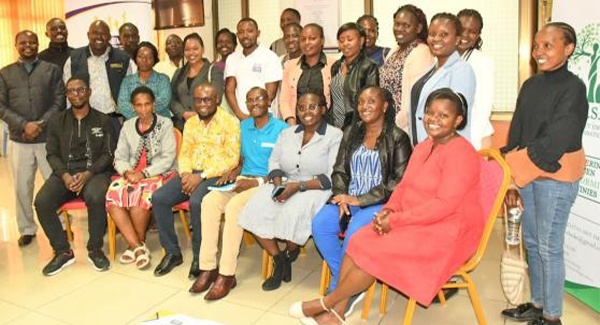Nakuru Team Gathers to Tackle Triple Threats of GBV, Teenage Pregnancy, and HIV
In a decisive move to confront some of Kenya’s most persistent social challenges, the Nakuru Regional Office convened the Nakuru East and West Gender Cluster earlier this week to deliberate on the Annual Work Plan and chart a stronger, more coordinated strategy against the “Triple Threats” of GenderBased Violence (GBV), Teenage Pregnancy, and HIV. The stakeholder meeting, held at the Nakuru Regional Office, drew participation from civil society actors, government representatives, health practitioners, and community leaders.
With direct support from the Women in Society Empowerment Organization and the Trust for Indigenous Culture and Health (TICAH), the forum underscored a renewed urgency in amplifying joint efforts, accelerating targeted interventions, and driving policy alignment aimed at safeguarding vulnerable populations, particularly adolescent girls and young women.
Recent data from the Kenya Demographic and Health Survey (KDHS) 2022 revealed that 15% of Kenyan girls aged 15–19 are either pregnant or already mothers. Nakuru County, a fast-growing urban hub, has seen a sharp rise in adolescent pregnancies, with health facilities reporting over 8,000 teenage deliveries in the past year alone. Parallel data from the National AIDS Control Council (NACC) indicates that youth between the ages of 15–24 account for over 40% of new HIV infections in Kenya.
Representatives from Women in Society Empowerment Organization and TICAH presented findings from ongoing community-based projects, highlighting alarming trends and systemic challenges, including limited access to comprehensive sexuality education, economic pressures, and harmful cultural norms that perpetuate early marriages and silence survivors of GBV.
One of the core objectives highlighted at the meeting was the urgent need to empower women and girls in local communities to become advocates for their own well-being and that of others. By engaging community leaders, schools, and local influencers, the cluster aims to challenge harmful cultural norms, educate the youth about their rights, and provide resources for those affected by GBV, teenage pregnancies, and HIV
“Collective action is key,” said Mwaniki during the meeting. “By amplifying our efforts and coordinating more effectively, we can create a society where no one is left behind. The time to act is now, and we are committed to ensuring that every Kenyan, regardless of gender or age, has access to the support and protection they deserve.”
Teenage pregnancy remains a severe concern, particularly in rural areas where cultural practices, poverty, and lack of access to education create a dangerous environment for young girls. Strategies to combat this include creating safe spaces for teenage girls to receive counselling, ensuring access to reproductive health education, and strengthening partnerships with schools to improve sexual health education.
The Nakuru Regional Office team, in partnership with WISE and TICAH, is hopeful that this focused effort will result in tangible improvements in the lives of those most affected by these critical issues. By amplifying efforts, ensuring greater coordination, and fostering a spirit of collaboration, they are setting the stage for a future where gender equality is not just a distant goal, but a reality.
The Nakuru Regional Office team in a group photo with participants from the Nakuru East and West Gender Cluster.


Comments